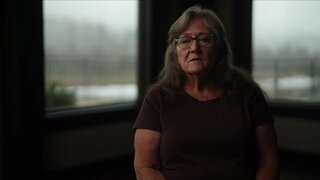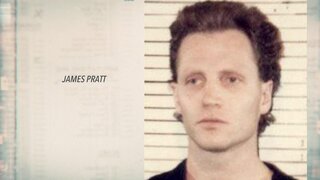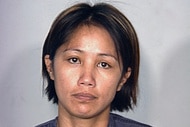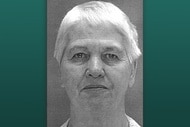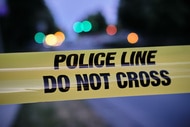Create a free profile to get unlimited access to exclusive videos, breaking news, sweepstakes, and more!
Idaho Brothers' Botched Robbery Attempt Leads To Hostage Situation And Slaughter Of Cop
On January 11, 1989, brothers James and Joseph Pratt attempted to rob a home. What followed was a shocking two-day chase.
James and Joseph Pratt were just teenagers in 1975 when their father moved the family from Michigan to rural northern Idaho to prospect for gold and silver — one of a series of get-rich-quick schemes that were neither quick nor resulted in anyone getting rich.
Their dad left his 19- and 21-year-old sons there a couple years later — off to the next big score — but the brothers stayed put, having taken on solid jobs at a local cedar mill. But by the late 1980, times were tougher: Joseph had met a girl and had kids, and the cedar mill had laid them off. The brothers didn't know what to do, so they asked their friend Gloria White, who owned a cabin in Bonners Ferry, Idaho, for a loan to tide them over.
Instead, Gloria introduced them to her friend "Jim," who offered the brothers $200 to use their car for a couple of days. They needed the money and didn't mind much what Jim did with it — even when they found out Jim's real name was Christopher Boyce, and he was a convicted spy who had escaped from the federal prison in Lompoc, California in January 1980 and was robbing banks to pay his bills. Instead, for a period of months, first James and then both brothers helped Boyce rob at least 16 banks in Washington, Idaho, and Montana of thousands of dollars.
But after a few months, James got it into his head Boyce was keeping more of the money than he should. Boyce — who had bought a salmon boat in Port Angeles, Washington and was taking flying lessons — disagreed. And when James realized that there was a significant bounty on his friend, he seemingly found a way to even the score.
Boyce was arrested in August 1981 in Port Angeles, tried for his crimes, and returned to prison for 28 years on top of the 37 he had yet to serve for his original crime. (He was eventually released in 2002 after his lawyer successfully appealed.) The Pratt brothers reportedly received full immunity for their roles in the bank robberies and $25,000 each for testifying against Boyce.
And then, for about eight years, they dropped off the radar of law enforcement.
On Jan. 11, 1989, however, the Bonner County sheriff received a frantic phone call at around 9:29 p.m. from a young woman who said that nine members of her family were being held hostage by two armed men in masks.
"I was 11 years old at the time," Tim Tucker told "Killer Siblings," airing Fridays at 8/7c on Oxygen. "I was in the bedroom with my cousin reading and the next thing I know, the door opened up. And I looked up and there was a guy dressed in all black with a ski mask. ... He had a gun out and ‘urged’ my cousin and I to get out in the living room and lay face down."
Tucker's family was visiting his aunt and uncle, Tammy and Mark Palaniuk, and they were staying at his grandmother's big house in the woods outside of Sandpoint, Idaho.
"There was a big ‘thunk’ on the floor upstairs," Tammy told "Killer Siblings." "I told Mark, ‘That’s weird, I wonder what happened.’”
The two headed up the stairs towards the living room.
"And when we walked up, a person was standing at the top of the stairs with this mask on," Mark Palaniuk said. "He had a pistol and bam! The guy hit me on the back of the head with the pistol, said, ‘Hey, dude, this is for real.’”
Two men in all black and ski masks lined the nine family members up on the floor of the living room and tied all their hands with duct tape.
"The robbers were going crazy, going ‘Where is the safe? Where is the safe at?'” Mark said. "I’ve been with Tammy since I was 16 years old, I'd never seen a safe in that house."
In the chaos, Tim's sister crawled to a bedroom and called the police. When they arrived, the robbers started to panic and tried to grab one of the men, Pete Quigley, as a hostage.
"When they grabbed that hostage and that guy got that pistol off me, that’s when I’m like, ‘No. You ain’t takin’ anybody out of this house,’" explained Mark. "I broke the tape from behind my back and I charged both of the robbers. When I was fighting, that’s when I got shot in the forehead. When I went down, he shot again through the leg. That’s when they grabbed the hostage and fled out the back door."
Outside, police heard the gunshots.
"I then heard commotion at the top of the landing to the porch area, and I see three individuals," Donner County Sheriff’s Office Deputy Michael Hutter explained. "Two of them are dressed in full black, with black face masks; I can see they had handguns."
The men were able to evade law enforcement and flee — but Quigley soon arrived back at the home. Quigley told the police that the two men had dragged him through the woods toward a gold-colored vehicle they'd parked some distance away and, once they reached the vehicle, simply let him go. He ran as the suspects took off headed south on Lignite Road — a dirt road that led toward the closest highway.
Meanwhile, more cops were headed towards the family's home; one of them, Det. Harvey Thompson, was heading north on Lignite Road when he was passed by a speeding gold Monte Carlo. He made a U-turn and gave chase ... and others soon followed.
Various officers from the sheriff's office pursued the Monte Carlo as it turned north onto Highway 95, which heads into the town of Sandpoint over a bridge spanning the Pend Oreille River; Sandpoint Police, however, blocked the bridge and, seeing the roadblock, the Monte Carlo turned left down Lakeshore Drive, a rural, winding road along the river that was not well plowed on that January evening.
As Thompson, still the lead car in the chase, began to catch up to the Monte Carlo, he saw a pair of arms come out of the passenger side window holding a shotgun, which began to fire on his vehicle. His passenger side windshield and seat took three shots, and he slowed down to stay out of the range of the gun, ultimately losing the car.
But less than a mile after losing the police, the Monte Carlo drove into a snow-filled ditch and became stuck. When police found the car, they saw ammo and footprints leading northwest into the woods, but no guns and no suspects.
Police identified the car — with its Michigan license plate — as belonging to James Pratt.
Around 2:00 a.m. on Jan. 12, 1989, law enforcement officers began tracking the two sets of footprints — one in Sorrell boots, the other in sneakers — leading from James Pratt's car and into the dense Idaho woods. They believed that they were looking for the Pratt brothers and that both were likely headed to the next river crossing, which was a mile and a half away through the rough, snow-covered terrain.
They tracked the Pratt brothers through a small set of vacation homes and, ultimately, across the railroad bridge spanning the Pend Oreille River — which was made up solely of railroad ties and had no other surface.
By 4:00 a.m., the team had lost the Pratt brothers' tracks and were exhausted; the search was suspended until sunrise. They started up again two hours later, with lots of reinforcements.
“Anyone who has a gun and a badge in North Idaho was assisting," explained Bonner County Prosecutor Louis Marshall.
By 5:00 p.m., it was getting dark, but various teams had come in to be able to surround the brothers and prevent their escape. Unfortunately, the mountainous terrain made it hard for radio communications to get through.
"We knew we had them contained between Smith Creek and the next road over, Wrenco Loop, which is probably not more than 200 yards," Bonner County Sheriff's Deputy John Lunde said.
Officers began moving in as the sun was setting. But soon, Lunde heard gunshots.
"It was dusk, so you couldn’t see very far ahead of you but it was very clear that there was a gun battle going on," he said. "I didn’t know who was who, so I could not engage at that point. And then the shooting stopped."
Meanwhile, his colleague in the Sheriff's Department, Jerry Jay, was stationed along Smith Creek Road in his patrol car to head off any escape to the south.
“It wasn’t all that long before Deputy Barberi came out of the woods," Jay told "Killer Siblings." "He got into the car and all he could say was that they had shot Brent Jacobson [ a U.S. Forest Service law enforcement officer assisting with the search]. He didn’t know if he was dead and he was kind of rambling about what had happened.”
The officers rallied at Smith Creek Road and headed back towards where Barbieri had encountered the gunfire. The Pratts were long gone — and it was too dark to start following their tracks again — but, with flashlights, they were able to find Jacobson, lying face-up in the snow, with his shotgun across his chest.
Jacobson had apparently bled out quickly; there would have been no way to save him.
Less than half an hour later, dispatch got a call from a man named Max Singleton, who lived on Wrenco Road: The Pratt brothers had barricaded themselves in his home but wanted to surrender.
"We didn’t quite know what the motive was," said Sandpoint Police Officer Brand Maskell. "Was is possible that this is all some sort of a ruse to bring us in and take us out?"
The teams set up a perimeter around the Singleton house, and then two take-down teams positioned themselves immediately outside.
"The first one that came out was James Pratt," said Maskell. "I was able to take him into custody. And I can remember him screaming in pain and yelling that he’d been hit."
James Pratt's serious leg wound appeared to be the reason for the brothers' surrender; Joseph Pratt came out next and was also quietly taken into custody.
"I mean, you’re happy that you caught them but you always wonder was it worth the cost," Lunde said.
After the arrest, police discovered that Joseph Pratt had done odd jobs for Tammy Palaniuk's mother, and had become convinced there were multiple safes in the home. Forensic tests determined that James Pratt's shotgun fired the shot that killed Jacobson. Neither brother spoke to police after their arrest.
Both were charged with first-degree murder of a law enforcement officer, two counts of second-degree kidnapping, one count of robbery, four counts of aggravated assault, and one count of first-degree burglary. They went to trial together in May 1989 and were convicted on all charges a month later. James Pratt received the death penalty, but the Idaho Supreme Court overturned that sentence in 1993 and he was re-sentenced to life in prison. Joseph Pratt also received a lifetime sentence.
The brothers were paroled in April 2021, over the objections of the families and local law enforcement. They served just over 32 years in prison.
The U.S. Forest Service named a local mountain after Jacobson, who was also awarded the Idaho Medal of Honor in 2011, according to the Bonner County Daily Bee.

